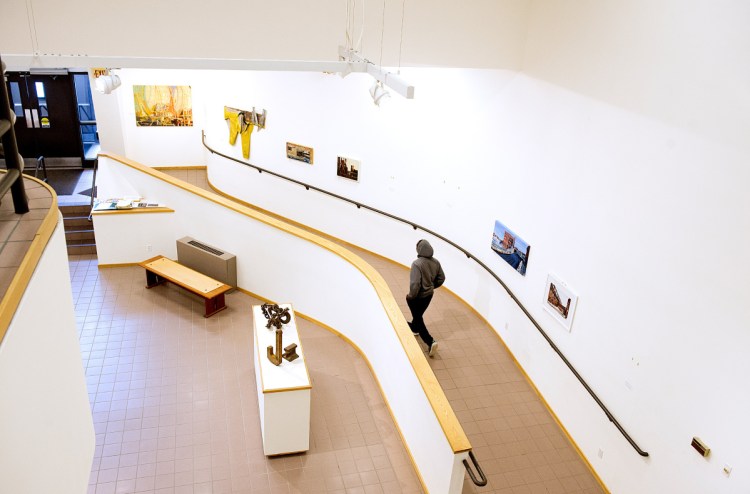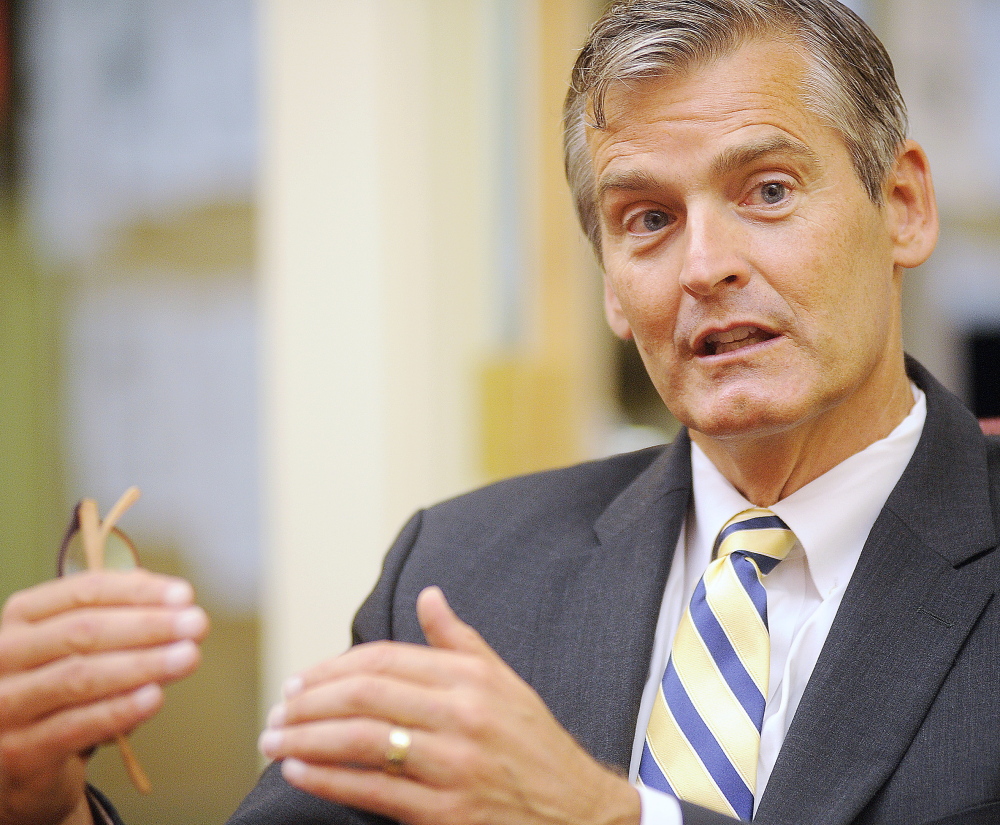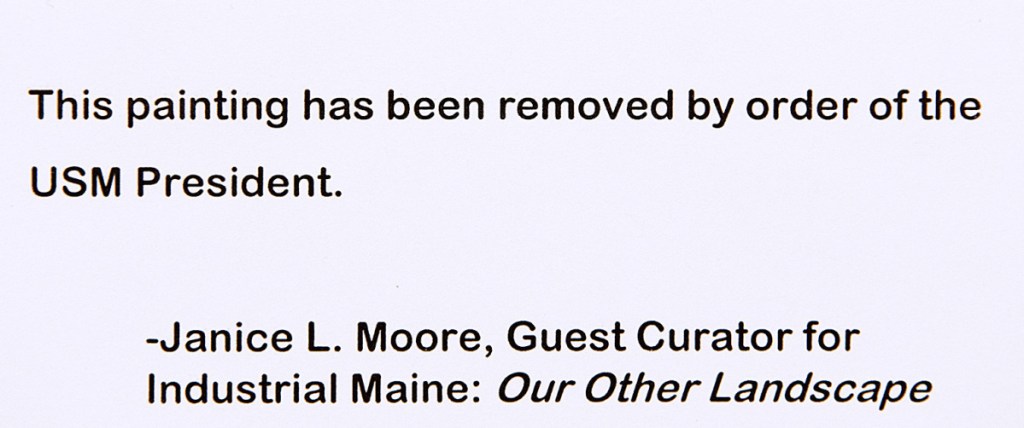The University of Southern Maine removed paintings by a convicted sex offender from a campus art show in Lewiston because displaying them might “serve as a trigger” for victims of abuse, USM President Glenn Cummings said in a statement issued Monday afternoon.
“Some would argue that taking the artwork down could be regarded as censorship. Advocates for victims of abuse, however, would argue that leaving the artwork up could serve as a trigger for our students and staff who have been victims of child abuse and sexual assault,” Cummings said in the statement. “Since the display is at the campus main entrance where our students and staff are required to enter and exit, the potential to trigger is very real. This is very different from a controversial speaker in which students can choose – or not – to attend.”
The university removed the three paintings by Bruce Habowski, 51, of Waterville from the group exhibition in early April after receiving a complaint that he was convicted of sex crimes in 1999. The show, called “Industrial Maine: Our Other Landscape,” opened March 12 and includes art by more than two dozen Maine artists.
In a short statement last week, the university said the complaint involved the artist and not the content of the art. Through a spokesman, Cummings declined further comment at the time.
On Monday, he elaborated.
“Several people at USM were consulted about this situation, including our legal team, and the consensus was to take down the art. It clearly resides in our purview to do so. It was an extremely tough decision to make – but in the end the requirement to provide a safe place for our students stands paramount,” he said. “As a defender of free speech, taking down art is something I do with tremendous reluctance. But on balance, the protection of our students – who have no choice but to see the exhibition every day – must prevail.”
The show’s curator, Janice L. Moore, protested the action, and artists from the Portland chapter of the Union of Maine Visual Artists sent a letter to Cummings objecting to the removal of the art, citing censorship and the violation of the artist’s First Amendment rights.
On Monday, the National Coalition Against Censorship also issued a statement critical of USM, saying the university is obligated to uphold “freedom of expression in exhibition spaces as staunchly as in their classrooms. … Artists, like all people, are morally complex. Art exists precisely to help us better understand those complexities. Rather than suppressing the creative output of those who fall short in their moral conduct, a university needs to engage its students in a critical discussion of art, politics and ethics. A case where the very presence of an artist’s work is disturbing to some individuals provides a valuable teaching opportunity.”
It urged USM to return the artwork to the gallery space.
Bob Keyes can be contacted at 791-6457 or at:
bkeyes@pressherald.com
Twitter: pphbkeyes
Send questions/comments to the editors.





